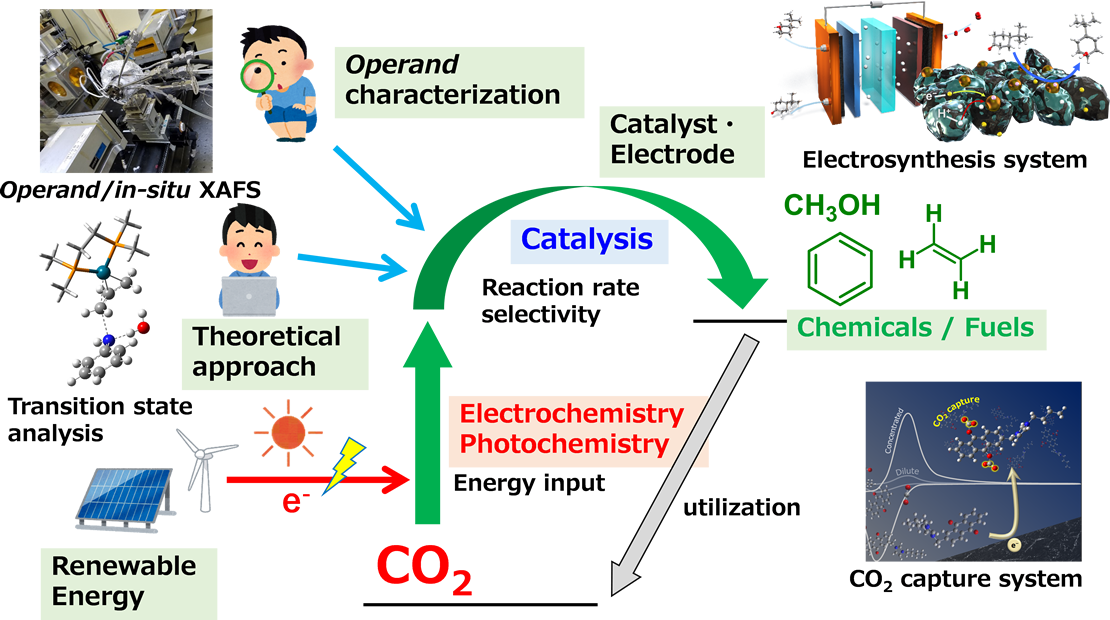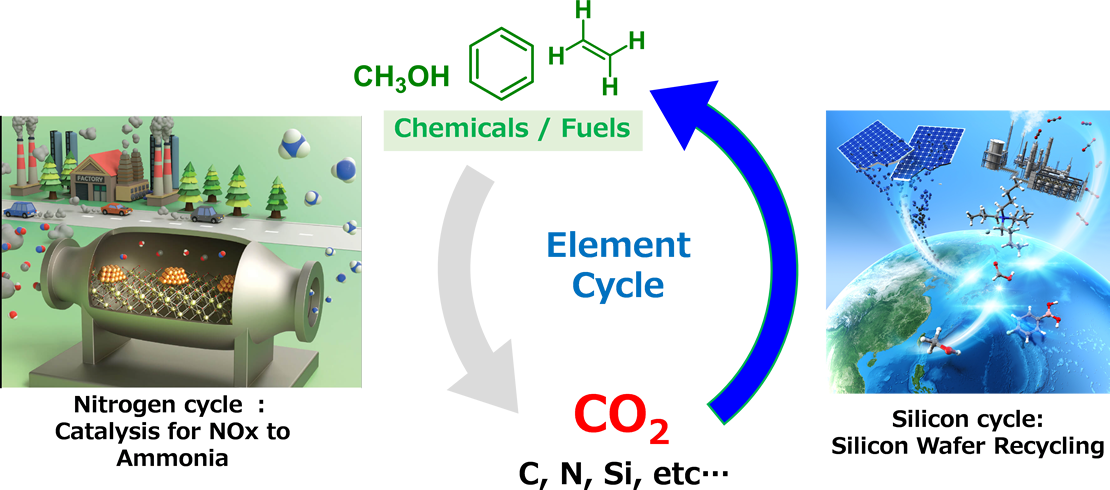【Research Target】
Breakthroughs in the field of chemistry for GX.
※GX(green transformation)is to transform the economic, social, and industrial system from centered on fossil fuels to one centered on clean energy.
The Research Center for Chemical Green Transformation (GX) was established in 2023, which is the advanced form of the former research center, YNU Research Center for Young Scientist, established in 2021 by researchers in the fields of catalysis and electrochemistry (Motokura, Ueno, Shida). We aim to achieve breakthroughs in the field of chemistry for GX to contribute to a carbon-neutral society.
To describe further, we will attempt not only to develop a novel scientific principle in the field of electrocatalytic conditions but also to achieve highly efficient electrochemical CO2 conversion system. In addition, toward the chemical GX, development of photo-driven chemical reactions and a reaction system utilizing renewable energy are important research targets. To conduct these studies, collaboration of researchers in the fields of catalysis, electrochemistry, photochemistry, operand analysis, and renewable energy is mandatory. Additionally, to understand the reaction systems and propose novel materials toward the breakthrough, collaboration with the fields of material science, interface science, and theoretical chemistry is also necessary.

For instance, both energy input and reaction rate/selectivity control are necessary for transforming CO2 to chemicals/fuels. The energy input and control over rate/selectivity are realized by photo-/electrochemistry and catalysis, respectively, which requires the knowledge of several fields. In addition, the collaboration of several researchers is mandatory for the utilization of renewable energy, operand analysis, theoretical calculations, and development of suitable catalyst/electrode materials.

To develop a sustainable society, not only the carbon cycle itself but also other elements that strongly affect carbon cycle should be considered. Nitrogen and silicon recycling should always be considered during the development of chemical reaction processes. Development of novel catalyst and catalytic systems for nitrogen (e.g., NOx to ammonia catalyst) and silicon (e.g., catalytic CO2 conversion with waste silicon upcycling) cycles is highly desired. To suppress energy consumption in the world, establishment of element neutrality (including C, N, and Si) should be a key factor.

Catalysis for NOx to ammonia:
https://doi.org/10.1039/D2CY01793H
CO2 upcycling by waste silicon:
http://doi.org/10.1038/s42004-022-00767-4
http://doi.org/10.1002/ajoc.202200230
http://doi.org/10.1039/D1YA00077B